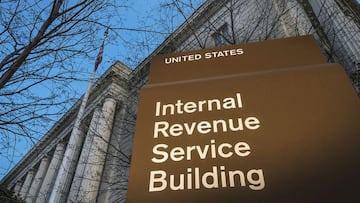New IRS tax rules on Venmo and Paypal: Everything you need to know
The agency plans to change how third-party app payments are reported in tax returns, but will now wait until next year to send out the 1099-K forms.

After three years of pandemic-affected tax seasons, the IRS is hoping to start of 2023 on the front foot. The agency is benefitting from $80 billion in new funding to help clear the backlog of unprocessed returns from previous years.
One change that won’t be introduced this year, however, are new tax rules governing the reporting of online payment services. The IRS had intended to make 1099-K forms mandatory for taxpayers who receive more than $600 in earnings from services like Venmo, PayPal, Cash App and Zelle.
Last month Doug O’Donnell, acting IRS commissioner, confirmed that the changes will not be enacted for this filing season:
“To help smooth the transition and ensure clarity for taxpayers, tax professionals and industry, the IRS will delay implementation of the 1099-K changes.”
Who will get a 1099-K form this year?
The 1099-K forms will be used by a small number of self-employed filers this year, but the IRS wants to make their use far more widespread. As it stands, taxpayers are only required to complete the form if they receive at least $20,000 in payments from 200 transactions across 2022.
The payment services have an obligation to inform the IRS of any users who have hit those thresholds. The IRS will send out 1099-K forms to those filers.
For most recipients of the 1099-K, the form will actually make submitting a tax return much easier. The form, also known as Payment Card and Third-Party Network Transactions, allows self-employed individuals to list all of the payments received via payment app on a single form.
In the past each client would have had to be cited in a separate form.
What will change with the payment app rules?
For now most filers will continue to report payment service payments in the same way, but the IRS will seek to ensure that the changes are introduced in time for next year. The changes only relate to the way in which income is reported on tax returns, and will not see filers required to pay a different amount of tax.
From next year, payment services will be required to report any filers who earn more than $600 via their platforms. In many cases this will be a combination of business and personal payments, and the latter would not be subject to tax.
The IRS will require filers to identify which payments are personal and which are business, doing so via the 1099-K form.
Despite rumours suggesting otherwise, the IRS will not be taxing personal payments. For example if you were to receive money from friends or family as a gift, to cover a restaurant bill, for a share of rent or utilities payments; those payments will not be subject to taxation.






